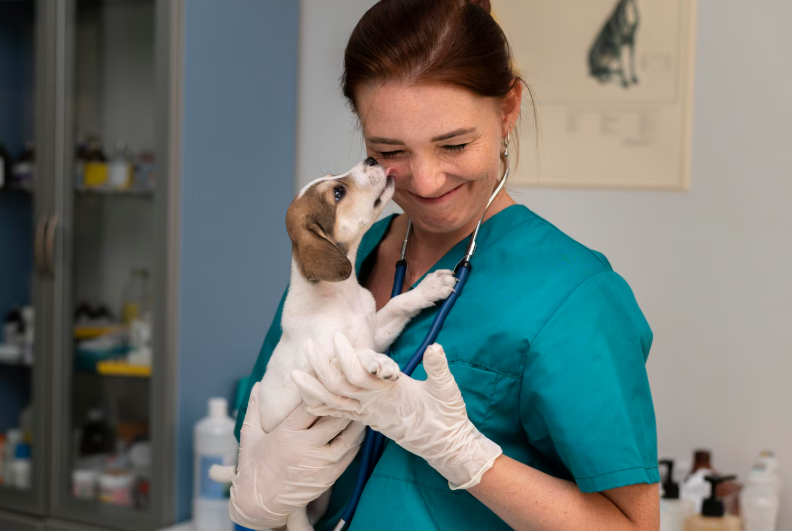What Is a Vet Tech? Career Guide to Veterinary Technicians
Curious about veterinary technicians? This guide covers what vet techs do, where they work, required education and VTNE credentialing, salary and job outlook, how they differ from technologists and assistants, and paths to specialize or advance.

If you have a passion for animals and want a meaningful career in veterinary medicine, becoming a veterinary technician—or vet tech—might be the perfect path. Vet techs are essential members of animal healthcare teams, working alongside veterinarians to provide care, comfort, and medical support for a wide range of animals.
What Does a Vet Tech Do?
Veterinary technicians are trained professionals who assist veterinarians in diagnosing and treating animals. Their daily responsibilities are varied and can include:
Observing and recording animal behavior and condition
Providing nursing care and first aid to injured or recovering animals
Collecting samples for laboratory tests, like blood or urine
Performing diagnostic imaging, such as x-rays
Preparing animals and equipment for surgery
Monitoring anesthesia and assisting during surgical procedures
Administering medications, vaccines, and treatments as prescribed
Educating pet owners about animal care, nutrition, and post-treatment instructions
Maintaining detailed patient records
Vet techs play a hands-on role in both routine and emergency veterinary care. While their duties are wide-ranging, there are certain tasks—such as diagnosing conditions, prescribing medication, or performing surgery—that only veterinarians are licensed to do.
Where Do Vet Techs Work?
Vet techs are found in many animal care environments, including:
Private veterinary clinics and animal hospitals
Specialty animal hospitals and emergency clinics
Research laboratories
Non-profit organizations and animal shelters
Zoos and wildlife facilities
Government agencies and teaching institutions
The work can be physically and emotionally demanding. Vet techs often work evenings, weekends, or holidays, and may face challenging situations, such as assisting with euthanasia or treating abused animals.
Education and Certification Requirements
To become a vet tech, you typically need to complete a two-year associate degree in veterinary technology from an accredited program. Coursework covers animal anatomy, physiology, pharmacology, nursing, and laboratory procedures. Most programs also require hands-on externships for real-world experience.
After graduating, aspiring vet techs must pass the Veterinary Technician National Exam (VTNE) to become credentialed. Depending on the state, this credentialing may be called registered veterinary technician (RVT), certified veterinary technician (CVT), or licensed veterinary technician (LVT). Continuing education is often required to maintain credentials and stay up to date with advances in veterinary medicine.
Vet Tech vs. Vet Technologist vs. Vet Assistant
There are several roles in veterinary care, and it’s important to know the differences:
Vet Tech: Holds an associate degree; provides clinical and laboratory support under veterinarian supervision.
Vet Technologist: Holds a bachelor’s degree in veterinary technology; may have more advanced responsibilities, specialize in certain fields, or work in research and management.
Vet Assistant: Usually requires a high school diploma or certificate; assists with animal care and administrative tasks but does not perform medical procedures.
Salary and Career Outlook
The demand for vet techs is strong and growing. According to recent data, the median annual wage for veterinary technicians is around $45,980, with higher earnings possible for those with advanced skills or who work in research, specialty clinics, or educational settings. The field is expected to grow much faster than average over the next decade, driven by increased pet ownership and advances in veterinary care.
Advancing Your Career as a Vet Tech
Vet techs who wish to advance can pursue further education to become veterinary technologists, specialize in areas such as surgery or emergency care, or move into roles like practice management, research, or teaching. Ongoing professional development and networking with veterinary professionals can open new career opportunities.
Is a Vet Tech Career Right for You?
Becoming a vet tech can be deeply rewarding for those who love animals and want to make a difference in their lives. It’s a career that requires compassion, attention to detail, strong communication, and the ability to handle both the joys and challenges of animal care. If you’re ready to combine your passion for animals with a fast-paced, hands-on healthcare role, a career as a veterinary technician could be your perfect fit.
Related: Vet Tech Week: Celebrating Veterinary Technicians’ Impact, Veterinarian Salary: How Much Do Vets and Vet Techs Make?, and Unpacking the Vet Tech Salary: What to Expect, Who Earns More, and How to Grow.
